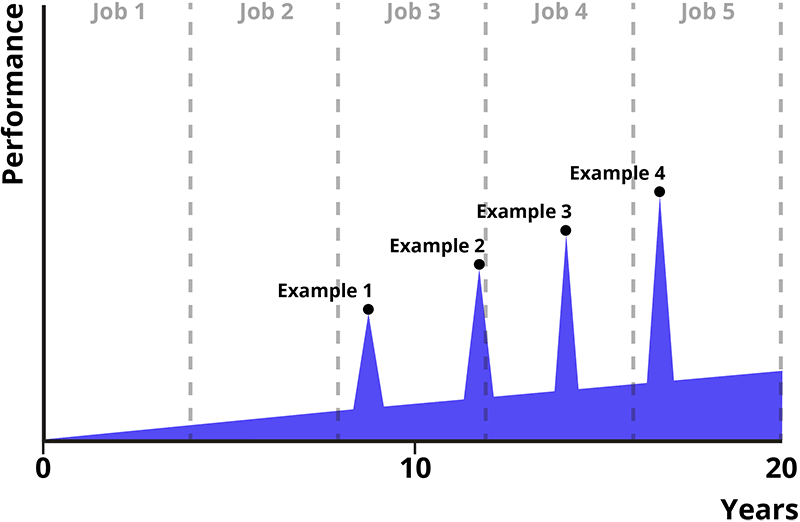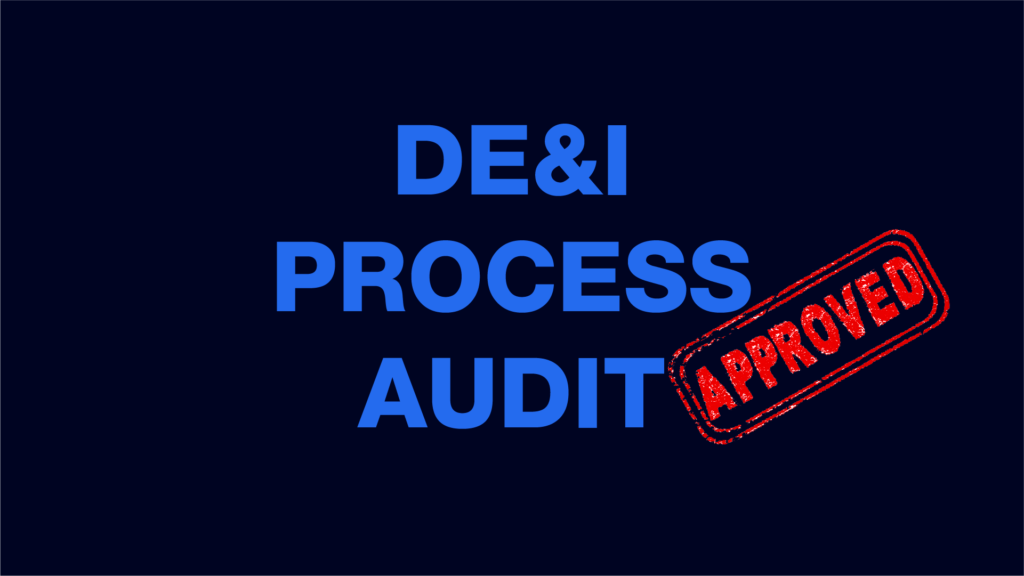How Competency Interviews Are Failing DE&I Hiring
In Brief
- Competency interviews serve only to identify a highlight reel of great examples from a candidate’s career.
- Asking about specific competencies tees up the candidate to share a great story about that particular competency.
- D&I isn’t best served by competency interviews as they only capture an incomplete story, thus leaving decisions to the mercy of the interviewer’s biases.
- A much more rigorous and complete question structure is required in order to get deep into the candidate’s one and only life story.
The Details
Interviewing for experienced hires in most companies is chaos. People don’t think it’s chaos because there is, by some definition, a structure to it. That structure, however, is mostly competency interview-based, with the hiring manager and HR executives conducting interviews and then inviting other people to interview and share their opinion on the candidate. These opinions, however, are normally based on different sets of questions, with different agendas, and most certainly with different biases affecting the outcomes.
For years now, we’ve been asking the same old questions and getting the same old answers. How are the answers compared? How can they be compared when they’re not even asking similar questions? The degree to which an interview question is relevant and measurable or susceptible to interviewer bias has rarely been brought into question. Are these the right questions, though? Why do we believe these are the right questions? What do these questions tell you about the candidate and their ability to do a job? How is this answer useful? How can you measure the answers compared to other candidate answers? Can the answers be objective enough to compare in a meaningful way? Do we even need to be able to compare and measure responses? These are difficult questions, and it’s no wonder we haven’t sought to tackle them and instead have chosen to revert to the same way we’ve always done it.
This is a very complicated issue, and it’s no surprise we continue to bury our heads in the sand and keep asking what we’ve always asked. To illustrate the complexity of the issues we’re faced with, I’ve summarized below much of what is wrong with the questions we ask in interviews today:
- Interviewers aren’t questioning what they’re asking. If they were, we’d be asking different questions or certainly fewer questions.
- The answers we get from the questions we’re asking cannot be accurately measured or compared in most cases. Sometimes it’s not necessary to measure, like when we’re looking to build out a story that we can then ask further questions about, for example. However, for the most part, like for like comparisons are difficult.
- For any qualitative answers, the interviewer will often base their opinion on the extent to which they agree with the candidate’s opinion.
- For any quantitative answers, people can lie, and often, answers are impossible to fact check.
- For competency-based interviews that require memory recall, not everyone can remember every situation they’re asked to recall an example about.
- For competency-based interviews, candidates can lie if they can’t think of a real reason.
- For hypothetical-based interview questions, someone is responding about what they “would do in that situation.” That’s not to say they would actually do that, and again, they can lie about what they say they would do.
- Interviews are inevitably biased towards what the interviewer thinks they’re looking for.
- Interviewers are often terrible at interviewing.
(In)competency Questions
According to the dictionary, incompetence is “The inability to do something successfully,” and competency questions, for me, fail on so many levels to qualify candidates in an interview, hence why I refer to them here as incompetency questions. I should add that it’s not the concept of understanding a candidate’s level of competence through asking questions that I take issue with. Rather, it is the traditional behavioral competency-based questions that are the problem.
Asking for an example of a competency allows for the candidate to pick the best example from any job they’ve ever done. This does not infer the extent to which that person is generally competent in that regard. For most general competencies, any candidate who has bothered to look up “competency questions” will have come up with a few examples, anticipating such questions. If asked to demonstrate one competence in one example out of a whole career, what does that tell you about the candidate? That they are abundant in that competence and that if they’ve been able to share an example, no matter how weak or insignificant, that they “pass” that question? It’s a ludicrously ineffective way to assess competencies.
The issue is that competencies are not normally demonstrated to any reliable degree in just one example. We have to be looking for patterns of competencies rather than just examples of them chosen at random from any stage in their career. Getting a candidate to choose an example from some time in their career is too easy. We also have to make the interviews more engaging and better flowing, focusing on roles one by one so it’s not entirely obvious to the candidates which competencies we’re seeking to identify.
ies we’re seeking to identify.

To illustrate, this chart represents a hypothetical individual’s career who has been working for twenty years, and at that point in their career, they are being interviewed for a new role. For the sake of simplicity, their twenty-year career has been broken up into five different jobs of equal tenure. What job this person does or what companies they worked for are of no significance to this illustration. It shows what someone conducting a competency interview may conclude they are observing. The dark area is an abstract representation of the perceived performance of the candidate over their career, according to the answers they are receiving to the competency questions. The interviewer picks a competency, they ask for an example, and the candidate gives their best answer. These answers are plotted on the diagram as examples one, two, three, and four. Their position represents the time in the candidate’s career that those examples came from and the assumed performance of the candidate, as graded by the interviewer, based on these examples.
What is often happening in competency interviews is that mediocre candidates whose actual performance are able to give amazing examples because despite a mediocre career, they either have one good example of each competency from a whole twenty-year period, or they are just good at making things up, and therefore, give great answers. As the interviewer is skimming through a series of competency-based questions, they are not getting into enough detail of each of the roles in order to spot patterns of competence or lack thereof. Instead, they are forming opinions based on a series of great examples, which may not even be real. Worse still, they may be basing their view on a series of bad examples when a good candidate just hasn’t been able to remember some of the unmemorable moments the interviewer is inquiring about.
Almost anyone in any profession could patch together an amazing history based on the few examples they may have, or examples they completely make up. If all the interviewer is doing is targeting specific competencies and not diving deep into their story with very specific questions, key information will be missed, and worse still, may end up with a misleading story. This problem is further exacerbated by the fact that the interviewer is telling the candidate exactly what competency they’re looking to find out about. The candidate then has a chance to assess what they believe the interviewer may be looking to hear and respond accordingly. This differs greatly from asking them a series of questions that guide them deep into each role, where the interviewer is drawing informed conclusions about the presence of certain competencies, or not as the case may be.
With competency interviews, there is little to no requirement for real interviewing skills, certainly not as I would define them. I would define real interview skills as “The ability to direct a candidate through a series of related questions that seek to form as complete and honest a representation of a candidate’s history as one can hope to achieve, given inherent interview limitations.” The biggest inherent limitation of an interview is that the candidate can lie, of course.
The conclusion to this is that if you conduct competency interviews, you just give the candidate the opportunity to dip in and out of their career history at will, choosing the greatest moments or making the moments up. The bottom line is, candidates have one history and one story. To get the best from candidates and to give them the best opportunity to present themselves fully and fairly, you have to get very deep and specific about each role. It helps them remember through the association of facts, and it will help the interviewer to spot trait patterns and reach a more informed conclusion about their candidacy.
Conclusion
With all of the issues: the interviewer, the structure, the questions, how we judge the answers, it is clear that there’s a lot of work we have to do to improve the whole interview process and experience. It is also clear that it’s just a very complicated set of problems. In my observations of working with many different companies over the past twenty years, I believe we tend to overthink the process and over-interview. I believe this happens because we don’t fundamentally trust the process, and deep down, we kind of know that we don’t really have a good grip on how this process should work. If we did, we wouldn’t keep hearing about all of the bizarre questions, and we certainly wouldn’t just continue to rely on the very shallow and useless competency-based questions dominating the interview process in companies today.
Ultimately, interviewing is a process by which we’re trying to learn as much about a candidate in a short space of time, seeking to predict how well they may do compared to other candidates for a given role. I don’t think we have to make it as complicated as we have been, and for sure we need to be stopping, taking a step back, and asking a series of questions about our interview process:
- Are the hiring managers trained to interview people in terms of selling the company, the role, and qualifying candidates based on pre-agreed criteria?
- Are the questions we’re asking fit for purpose, and if so, what purpose do they serve?
- Does our interview process have mechanisms in place to minimize the potential for candidates lying and for hiring managers to make as unbiased decisions as one possibly can, given the inherent limitations?
- Is the candidate experience going to be optimized by the structure of our interview process?
Competency interviews are simply not fit for purpose. Having different stakeholders with different agendas just asking whatever questions they desire is not fit for purpose. Candidates shouldn’t be judged on their ability to answer questions focused on recalling such unmemorable moments that they no longer reside in their memories. The D&I agenda is clearly very high on all company’s priority lists. We cannot maximize the good intentions of these efforts if we do not have fair and equitable interview processes in place. Without such a process, candidate selection will always be a corrupt process of biased and chaotic guesswork.
About The Author
Fraser Hill is the founder of the leadership consulting and assessment company, Bremnus, as well as the founder and creator of Extraview.io, an HR software company aimed at experienced hire interview and selection in corporates and executive search firms. His 20+ year career has brought him to London, Hong Kong, Eastern Europe, Canada, and now the US, where he lives and works. His new book is The CEO’s Greatest Asset – The Art and Science of Landing Leaders.




